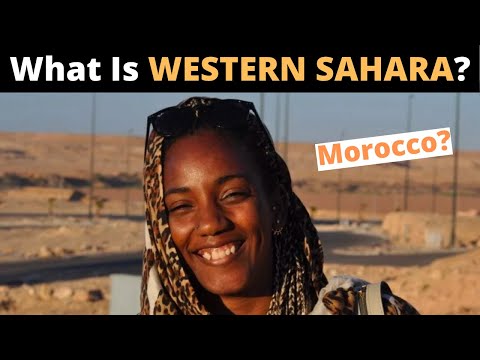
Western Sahara, a region in North Africa bordered by Morocco to the north, Algeria to the northeast, Mauritania to the east and south, and the Atlantic Ocean to the west, is often at the center of geopolitical discussions and conflicts. This vast arid territory has a complex history characterized by colonial rule, disputes over sovereignty, and a long struggle for independence.
### Historical Context
Originally inhabited by Berber tribes, Western Sahara came under Spanish control in 1884 during the European scramble for Africa. The territory was known as Spanish Sahara until Spain withdrew in 1975. The departure of Spain set off a conflict between Morocco and Mauritania who both claimed sovereignty over the area, and the Polisario Front—a nationalist organization seeking Sahrawi independence.
### Morocco’s Claim and Role
Morocco has maintained that Western Sahara is an integral part of its kingdom historically and culturally. After Spain’s withdrawal, Morocco annexed Western Sahara through what it termed as the “Green March,” where thousands of Moroccan civilians crossed into the region to signify their claim. In 1976, Morocco and Mauritania divided Western Sahara between them. However, after resistance from Polisario fighters backed by Algeria—Mauritania withdrew its claim in 1979, leaving Morocco to consolidate control over most of the territory.
### The Role of Polisario Front
The Polisario Front declared an independent Sahrawi Arab Democratic Republic (SADR) in 1976 which has been recognized by some countries and remains a member of the African Union. From bases in Algeria’s Tindouf refugee camps where many Sahrawi refugees live today, the Polisario Front engaged in guerrilla warfare against Moroccan forces until a ceasefire brokered by the United Nations came into effect in 1991.
### United Nations Involvement
The United Nations has attempted to mediate this dispute primarily through MINURSO (UN Mission for the Referendum in Western Sahara), established as part of efforts towards holding a referendum for local people to choose between independence or integration with Morocco. Despite these efforts, no referendum has been held due to disagreements on who is eligible to vote.
### Present-Day Situation
Despite being rich in phosphates and potentially offshore oil deposits—and having lucrative fishing waters—much of Western Sahara’s population lives under poverty levels. Legally speaking, it remains one of only seventeen Non-Self-Governing Territories listed by the United Nations Committee on Decolonization.
Morocco maintains administrative control over major towns like Laâyoune (El-Aaiun) while proposing autonomy under Moroccan sovereignty as a compromise solution since 2007. Meanwhile, parts of Eastern Western Sahara are controlled by Polisario forces which maintain parallel institutions for Sahrawis living there or in refugee camps across border areas inside Algeria.
### Broader Implications
The dispute over Western Sahara involves various regional players with broader implications for North-West African stability—it affects relations between neighboring states including Algeria (which supports independence) and affects wider international relations involving actors like France (an ally of Morocco), Spain (the former colonial power), as well as newer players like China looking at Africa strategically for resources.
In summing up what Western Sahara represents today: it stands both as an unresolved legacy from colonial times awaiting decolonization or resolution through international law; a regional conflict hotspot affecting lives daily; but also potentially key geostrategic terrain shaping future North African geopolitics.
